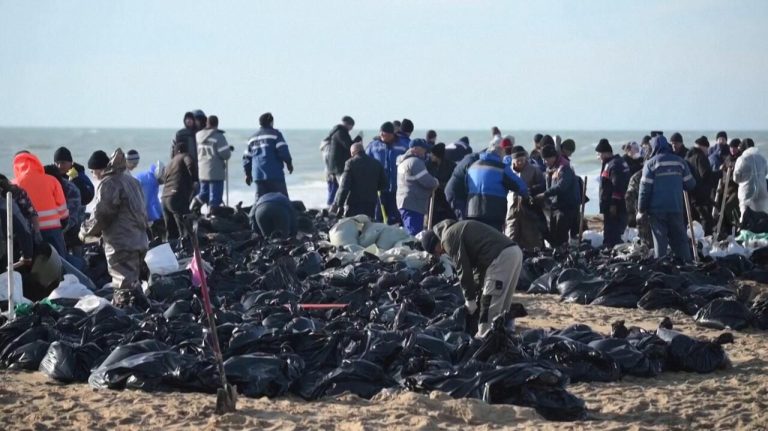In the middle of December, two tankers broke down in the Kerch Strait, and fuel oil went out. Russian authorities, according to The Guardian, reported that “up to 200,000 tons of soil may be contaminated.”
– As a result of the oil spill, up to 200 thousand tons of soil could be contaminated – said Alexander Kozlov, Minister of Natural Resources and Environmental Protection. Fuel oil is an oily liquid produced by the distillation of low grade crude oil.
Two Russian tankers – “Volgonieft 212” and “Volgonieft 239”, which were transporting about 9 thousand tons of oil, stopped working due to the storm. Volgoneft 212 broke in half and sank, and Volgoneft 239 fell to the ground. According to Russian officials, 40 percent of the ships' cargoes spilled into the river, but NGOs warn that the actual leakage could be much larger. The Ukrainian branch of Greenpeace noted that such a natural disaster could also occur in the Baltic Sea, because, as the organization claims, Volgoneft-class tankers are part of the “shadow fleet” whose routes pass through this water area. Russia created this fleet to bypass sanctions and illegal sale of its raw materials. Reuters and independent media reported that the Volgoneft 212 and Volgoneft 239 are older vessels built in the late 1960s and early 1970s. The Volgoneft 212 capsized, killing one person and injuring 11. have been The entire crew was evacuated from Volgoneft 239. Authorities have opened a criminal case on the grounds of violation of safety rules and use of vehicles.

